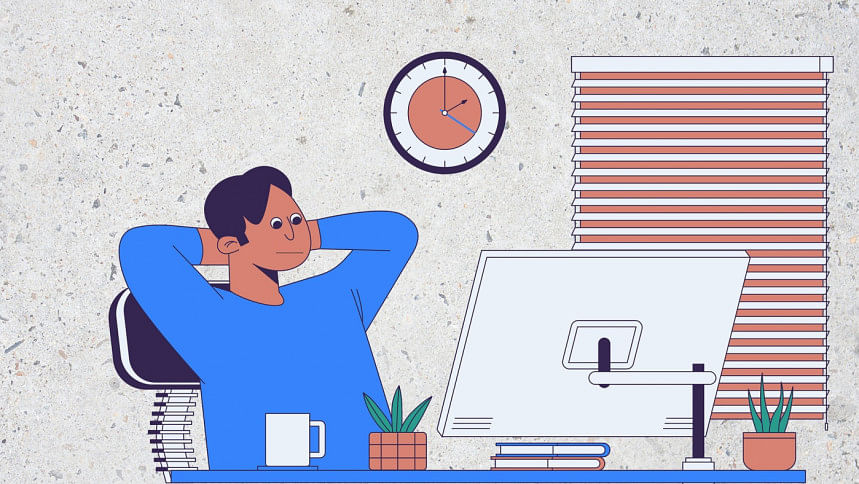Working from Home or Office?

A year and half into the pandemic, work has indeed changed its meaning in the dictionary for all of us. Offices are now cautiously opening on a roster basis, while many are still sticking completely to remote working hours. At a point when we're all dipping toes in both ends of the spectrum, this begs the question: what works better for us?
For starters, working from home felt more comfortable. It has led to us doing productive meetings even in our pajamas. In addition, lunch options could not have seen more variation, from weekly granola recipes to switching it up to experimenting on roast beef sandwiches, to coming down to just a packet of biscuits and tea. Perhaps, most importantly, work from home has enabled majority people to develop technical skills that had otherwise always seemed daunting to learn.
However, is all of it worth the downsides?
One of the biggest challenges about work from home was adjusting family members into a semi-professional setting. For parents, younger siblings, nieces and nephews, the idea of shutting everyone out just for a virtual video call has been basically impossible to fully process even till date. This often has led to awkward silences in the meetings, stifled laughter and stuttered explanations to the other people on the call that nobody really fully wanted to hear anyway.
Aside from the home party troubles, a big factor about work from home had to do with work balance being toppled significantly. Working from our own rooms naturally led everyone to a certain level of comfort of knowing that the work can always be finished two hours later at night. This seems like an easy pass, but once this becomes ingrained into our routines, it only leads to a fast burnout and darker under-eye circles.
Then what about going back to the office? Is it any better?
For many, this has brought a huge surge of relief. No more struggles of tinkering between professionalism and home-alism, back to faster communications taking place and the occasional adda of tea over colleagues you have missed seeing on a weekly basis. The idea of going back to office also seems ever more warming for the reason that it is indicative of going back to our previous idea of normalcy, which was snatched away in the pandemic era.
Sadly, as we continue returning to the physical workplace, we are once again having to confront many of the problems that we almost forgot about while working from home.
Traffic has once again regained full confidence in keeping you stuck at least for two hours. The motivated productivity therefore diminishes somewhat by the time you actually make it to your 9 am meeting- at 11.30 am. Moreover, the pandemic is still raging on so the fear of contracting the virus is still very much prevalent amongst individuals, especially those who have elderly family members in their households.
It is tough to say if all organisations will fully ever go back to the office, but remote working is regardless, here to stay.

 For all latest news, follow The Daily Star's Google News channel.
For all latest news, follow The Daily Star's Google News channel. 








Comments